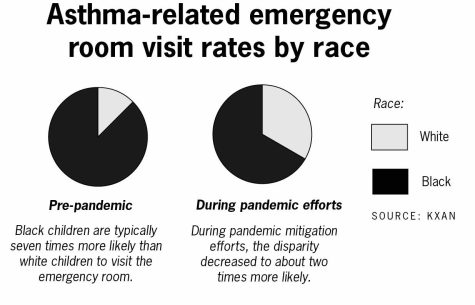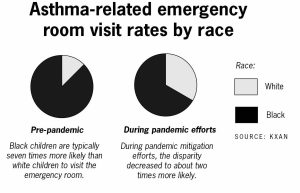NASA selects UT researchers to lead new Quantum Pathways Institute
March 29, 2023
On March 16, NASA announced the creation of the Quantum Pathways Institute, a collaboration between various institutions across the nation, focused on building quantum-sensing technologies and instruments to advance climate research. Four UT researchers were selected to work on the project.
The members from UT include professors Seth Bank and Dan Wasserman from the department of electrical and computer engineering and professors Srinivas Bettadpur and Ufuk Topcu from the department of aerospace engineering and engineering mechanics.
“Quantum sensing (is focused on) observing the mechanical behavior of atoms to sense the environment,” principal investigator Bettadpur said.
The team will be working on “next generation climate science” by building instruments that can sense small changes in gravity, Bettadpur said.
Bettadpur said it is important to ensure quantum sensing technologies are able to function in space without human intervention. He said when people have issues with their computers, they can reboot or unplug their devices, but the same cannot be done with quantum instruments while they are collecting data.
“We are tackling research into the physics of the instrument itself, research into reducing the size, weight and power (of the instrument) to prepare it for spaceflight, and research into systems engineering to understand how we can fly quantum instruments in space,” Bettadpur said.
The team’s goal is to use quantum sensing technology to better measure changes in events that are occurring faster as a result of climate change, such as melting ice caps, Bettadpur said.
“If you have altered patterns of rainfall in a region, some of the water sinks into the ground, and some of it runs off into the ocean,” Bettadpur said. “That pattern is moving mass around. As the mass moves around, the gravity field of the earth changes.”
Bettadpur said the institute will also be focused on educating younger generations about quantum sensing.
“This (institute) could potentially enable unprecedented science measurements, addressing some of the most important measurements identified in the 2017 Earth Science Decadal Survey, and other related studies key for climate change observations and to understand the Earth system,” Matthew Deans, program executive for NASA’s Space Technology Research Grants program, said in an email.
Bettadpur said quantum sensing holds immense potential for the future.
“As technology improves, we deploy better and better tools to sense smaller and smaller signals,” Bettadpur said. “Quantum is the next technological weapon that we bring to the game of sensing gravity.”









